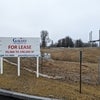Editorial: A rocky road toward a green economy
For the last couple decades, Massachusetts government and economic leaders have made several promises to reduce the state’s use of fossil fuels, and there are many miles to go before those promises are kept. Now the most recent proclamation, the Massachusetts Clean Energy & Climate Plan 2050, lays out a roadmap to essentially eliminate carbon from the electric grid and have in place a reliable infrastructure to achieve net-zero greenhouse gas emissions.
With no magic bullet on the horizon, achieving that objective will require a multi-pronged approach, with a blend of carrots and sticks to massively accelerate the rate of change. While some progress has been made in the last decade, the required rate of change to meet even the plan’s interim objectives for 2025 and 2030 will be stunning.
The electrical grid not only needs significant reinvestment to handle the mix of renewable projects coming online, but it will need to double, or perhaps even triple, capacity to meet the anticipated demand by 2050. That translates to a massive increase in transmission capacity and infrastructure, something we’ve become used to fighting about, particularly on the local level.
Back when WBJ hosted its first Energy Summit in 2007, we had the leader of the Cape Wind project as our keynote speaker. Cape Wind had been announced as the first U.S. utility-scale coastal wind energy project in 2001. It took 15 years, but the project was finally killed in 2017 after an endless number of legal actions, mostly funded by a powerful group of Cape Coders who did not want to see wind turbines from the deck of their summer homes. Now some 22 years later, a different wind project – Vineyard Wind – has made it past all the regulatory hurdles and is under construction, with the promise of generating enough energy to power some 400,000 homes, optimistically by the end of the year.
If that’s any example of how long a renewable energy project has to wait for approval in the future, we’re cooked. Our state leaders know this and are working to thread the needle with plans to support an accelerated investment and approval process for energy projects without pulling the rug out from under its citizens or municipalities. The devil remains in the details, but we are optimistic the right incentives, along with a more streamlined approval process, will get Massachusetts renewable investments back and ultimately operating at a record pace.
It behooves business owners to pay attention to those changes and any new incentives, be they federal or state, to give onsite renewable projects an even more attractive return on investment. The carrots will be there, but you’ve got to do a little digging to reap the rewards.
While the road to a carbon-free economy is fraught with obstacles, some exciting new technologies could help us get there. Two of those companies working on the cutting edge of clean energy are Electric Hydrogen and Commonwealth Fusion Systems, both operating out of Devens. If their technologies can come online at scale over the next couple decades, it could be transformative.
Transformation is what the Massachusetts economy will need over the next several years in order to fulfill its promise of a clean energy future. With many obstacles in the way, we are still holding out hope.









0 Comments